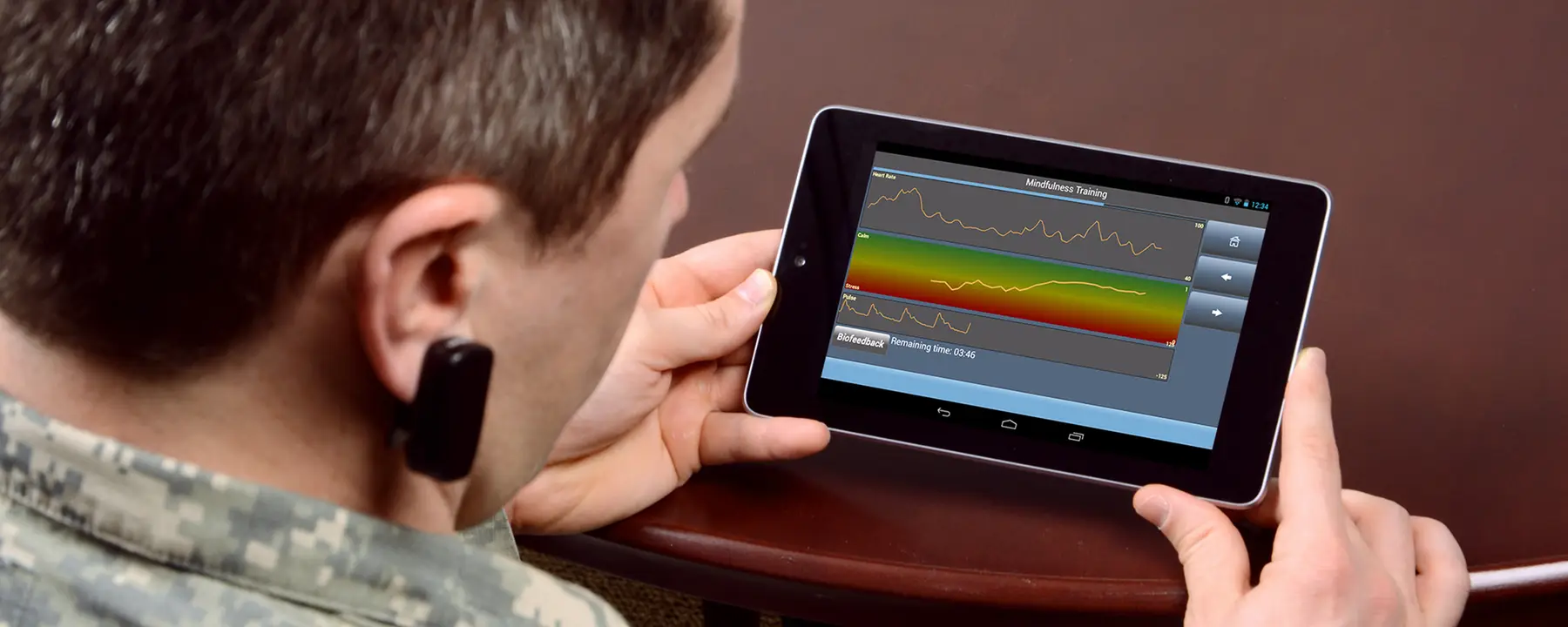Turning mobile devices into versatile health research tools
Rapid technological developments are turning mobile devices into pocket laboratories, making it easier for researchers to gather data with minimal intrusion, and for research subjects to receive education and instruction when and where they need it.
One of our contributions to the mobile technology revolution is the Personal Health Intervention Tool (PHIT), a versatile mobile health platform. Researchers in a variety of fields use PHIT to conduct assessments and deliver personalized interventions via smartphones and tablets to users of all ages in settings that range from the home to the classroom to the battlefield.
Designed for Adaptability
Employing a cross-platform technology that makes it easy for programmers to create mobile applications for both iOS and Android devices, PHIT collects data, analyzes it in real time, and informs users of the results. It allows research scientists to focus on the science, and gives programmers a versatile tool with reusable components that facilitates making modifications from one project to the next rather than always starting from scratch.
The PHIT platform makes it easy to develop project-specific apps that can be loaded on phones or tablets to collect self-reported data through survey-style assessments or personal diaries. Depending on the needs of a given study, PHIT-built apps can also track geolocation and movement or capture physiologic data through Bluetooth wireless sensors. A powerful logic engine provides on-board analysis of data to classify health status, identify potential problems, and recommend solutions using evidence-based criteria. PHIT then helps users turn information into action by providing multimedia educational content, behavior change interventions, reminders, and other self-help activities.
When clinical studies require subjects to do something you just can’t do on a mobile device―such as collecting saliva samples for a study of sleep habits, sleep quality, and substance abuse in adolescents― PHIT can provide step-by-step instructions to make sure biosamples are collected, stored, and delivered successfully. PHIT also offers locally encrypted data with automatic secure data transmission to a central secure server, so it works even in low-resource locations.
PHIT for Duty
The first PHIT app, PHIT for Duty, was developed to help military personnel cope with combat-related stress, anxiety, depression, alcohol abuse, and sleeplessness. Service members returning from deployment often suffer from mental health impacts but may not receive help because of the stigma associated with mental illness. PHIT for Duty is a stress-reduction tool soldiers can use at home or carry with them when they travel.
The app has built-in questionnaires to assess psychological health and behavior. An embedded virtual health advisor schedules health screenings and evaluations, provides information on health status, and recommends self-help activities and interventions. The app can also prescribe cognitive behavior exercises to help people reduce alcohol use or sleep better and send reminders encouraging users to practice healthy behaviors.
Biofeedback-Assisted Resilience Training
Under a 3-year grant from the United States Army Medical Research Acquisition Activity, RTI used PHIT for Duty as the foundation for a new research program on Biofeedback-Assisted Resilience Training (BART). In BART, a wireless heart rate monitor provides streaming data for assessing heart rate variability—a measure of stress level—as biofeedback during paced breathing training. BART users also play a lightly stressing game on their mobile devices to gauge how well their resilience training is progressing. In June 2017, we began conducting a field study involving Army Reserve and National Guard units that will help determine the effectiveness of BART.
Show Your Love
Another app built on the PHIT platform is designed to help women take care of themselves when they are thinking of becoming pregnant. Show Your Love, funded through a CDC Foundation collaboration with Anthem, Inc., provides women with simple “steps to a healthier me & baby-to-be,” such as charting the healthy behaviors they want to adopt and scheduling reminders to take their folic acid vitamin.
The app is part of CDC’s Show Your Love campaign and is available for free via iTunes and Google Play.
An App with Endless Applications
The hallmark of PHIT is its versatility—other PHIT-based apps help young women learn how to reduce their risk of HIV infection and assist adolescents with asthma in managing their medications.
With built-in survey and diary tools, sensor-based data collection, and libraries of standardized health and psychometric assessments, PHIT is ideal for research in any field that requires data collection and intervention delivery. With each new project, our researchers add new features and make this lab-you-can-carry-in-your-pocket ever more powerful.
- Development supported by a variety of federal agencies and nongovernment partners
